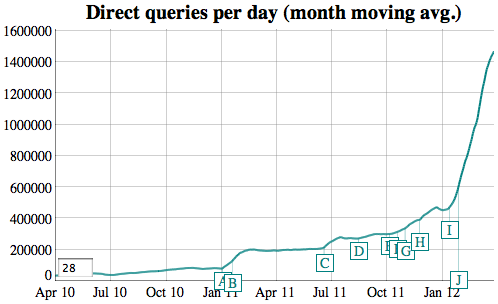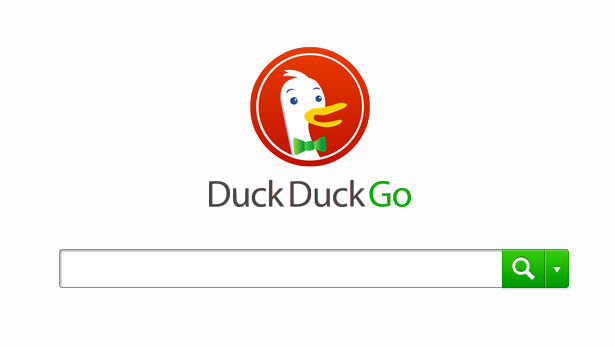DuckDuckGo blows up as privacy-conscious alternate to Google; Nears 1.5M daily queries, upgrades system

DuckDuckGo entered the search engine game in 2008, and it is averaging almost 1.5 million average direct queries per day and announcing system upgrades less than four years later.
The technology is simple: DuckDuckGo gathers results from crowd-sourced websites, such as Wikipedia and direct-competitor Bing, to display a host of search findings. It started as a privacy-conscious alternative to Google.
 The chart to the right illustrates DuckDuckGo’s momentum. It just passed the 1 million mark last month, jumping from 630,441 average daily queries in January 2011 to 1,041,493 in February. Current calculations place the search engine at 1,468,690 average daily queries.
The chart to the right illustrates DuckDuckGo’s momentum. It just passed the 1 million mark last month, jumping from 630,441 average daily queries in January 2011 to 1,041,493 in February. Current calculations place the search engine at 1,468,690 average daily queries.
Due to the search engine’s success, Founder Gabriel Weinberg announced two major projects underway today that include better programming and speed. The company is even open sourcing more heavily and improving entry points.
“For speed, just this week we upgraded our whole caching system, which should significantly speed up a lot of queries,” wrote Weinberg on Hacker News. “This change should equalize a lot of the location differences, which is the main issue. In some parts of the world we were way slower.”




